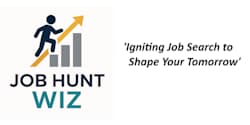Building a Career Safety Net: Your Blueprint for Long-Term Career Security
Why Every Job Seeker Needs a Professional Safety Net
The modern job market, whether you’re a new grad looking for your first job, a job seeker who is not currently employed, or someone with a job who is looking for a better one, is defined by its constant state of flux. Roles disappear, companies pivot, and economic changes can make even the most stable position feel uncertain. In this environment, the most critical investment you can make is not in your current paycheck, but in Building a Career Safety Net. This net is your professional insurance policy—a robust structure of relationships, skills, and strategic preparations designed to support you through unexpected transitions.
Many professionals view a job change as a crisis. However, with a proactive approach to developing effective career fallback plans, a transition can become a strategic step forward. Your ultimate goal is not just to find a job, but to cultivate long-term career resilience. This comprehensive guide will show you how to leverage strategic networking, diversified skills, and financial planning to construct a truly impenetrable Career Safety Net.

1. Strategic Networking: The Secret Weapon for Your Career Safety Net
The original article wisely identified networking as a secret weapon, and it remains the cornerstone of any effective Career Safety Net. For our audience—individuals actively searching or strategically planning their next move—networking is not a future-tense activity; it is a vital, present-day lifeline.
Start With Genuine Relationships, Not Transactions
Networking should never be treated as a numbers game, especially when you are actively Building a Career Safety Net. Authentic connections are infinitely more effective than attending events or sending generic messages solely to secure a new position. If you are currently unemployed, remember that reaching out with genuine curiosity and a desire to learn is more powerful than a desperate pitch. For those looking for a better job, use your current position to offer value to others—this is how trust is built.
- Engage with people whose work you genuinely admire: Don’t just look up, look across. Learn from their experiences and, critically, offer value in return.
- The Power of Small Gestures: Simple gestures—congratulating someone on a promotion, sharing a helpful resource, or commenting thoughtfully on a post—help establish meaningful professional bonds over time. These small acts of kindness are the threads that weave your safety net.
Genuine engagement opens doors that would otherwise remain closed. Connections built on trust and respect are far more likely to lead to opportunities, referrals, and mentorship—often long before any job openings are publicly advertised. They are your first, and best, line of defense when activating your career fallback plans.
Leverage Online Platforms Strategically for Maximum Reach
Digital networking expands your reach far beyond local events, a crucial advantage for new grads who may not have an established local network. Platforms such as LinkedIn, industry-specific forums, and even professional subreddits enable you to engage with thought leaders, peers, and mentors globally. Effective online networking requires a careful balance: being visible and active while avoiding the mistake of being pushy or overly self-promotional.
- Be a Thought Leader, Not a Leech: Post insights, share relevant articles, and comment meaningfully on others’ content. This positions you as engaged and knowledgeable, making people want to include you in their network.
- The Consistent Check-in: Periodic check-ins, milestone congratulations, or requests for advice help maintain connections over time. Consistent engagement is the fuel for long-term career opportunities and collaborative relationships.
Attend Industry Events With a Clear Intention
Conferences, seminars, and workshops remain valuable, but time is your most precious asset. Attending these events with a plan dramatically increases the effectiveness of your interactions and solidifies your Career Safety Net.
- Research Before You Go: Identify key individuals and prepare thoughtful, specific questions.
- Focus on Discussions, Not Job Hunting: Focus on challenging projects, industry trends, or future outlooks—rather than immediately seeking a job. This naturally builds rapport.
These conversations are what lead to mentorship, collaboration, and opportunities that may not be publicly listed, providing you with high-quality leads when you need to enact your career fallback plans.
2. Diversifying and Nurturing Your Career Fallback Plans
Building a Career Safety Net involves more than just who you know; it’s also about what you can do and the resources you have accumulated. A strong safety net requires diversification across multiple vectors: skills, sectors, and finances.
Maintain the Network Like a Garden: Nurture Your Connections
Networking is an ongoing commitment, not a one-time fix. Relationships need constant nurturing through regular check-ins, offering assistance without expectation of immediate return, and celebrating others’ achievements. Consistent engagement ensures that professional connections remain active and supportive.
- The Three-Month Rule: Aim to connect with your A-list contacts (those you rely on most) at least once every quarter, even if it’s just a quick message sharing an article they might find interesting.
- Reciprocity is Key: Always ask, “How can I help you?” before or immediately after you ask for help. This reinforces your position as a valued member of the network, not just a taker.
Diversify Connections for a Stronger Resilience
A resilient network extends beyond immediate colleagues or industry peers. For those looking for a better job, this diversification is your strategic advantage. Connections outside your immediate circle can introduce opportunities and insights that would otherwise remain inaccessible.
- Cross-Industry Exposure: Engage with professionals from related fields, attend cross-industry events, and seek mentors at different career levels. This provides broader perspectives and access to unexpected opportunities that can form the basis of a strong career fallback plan.
- The Consultant Mindset: Consider a side hustle or small freelance work. This allows you to build a portfolio and a network in a tangential field, providing a real, active career fallback plan that can be scaled up quickly if needed.
The Importance of a Financial and Skill-Based Safety Net
A professional safety net is not solely about contacts; it must include practical, measurable resources. A truly robust strategy for Building a Career Safety Net addresses the financial and skill gaps that often derail career transitions.
Financial Planning: Your Emergency Fund
The number one stressor during a job search is money. Your career fallback plans must include a financial component. While 3-6 months of expenses is the traditional advice, aim for 6-12 months if your industry is volatile. This gives you the peace of mind to hold out for a truly good opportunity rather than having to take the first job offered.
- Budgeting for Uncertainty: Start tracking expenses and identify areas to cut back on now, while you are employed. Every dollar saved reduces future stress.
- Emergency Income Streams: Explore passive or low-effort side income streams (renting out a spare room, selling unused items, or low-stakes consulting) that can be easily activated if your main income ceases.
Skill Development: Always Be Upskilling
For new grads and those looking for a better job, staying current is non-negotiable. Technology and industry demands shift constantly. Your safety net is only as strong as your marketability.
- Identify In-Demand Skills: Research job postings for your ideal role and identify the 2-3 skills you currently lack or need to refresh.
- Micro-Certifications: Invest in low-cost, high-impact online courses, certifications, or workshops (e.g., Google Analytics, specific software, project management methodologies). These immediately boost your resume and open up new avenues for your career fallback plans.
3. Following Through: The Execution of Your Career Safety Net Strategy
A well-planned Career Safety Net requires consistent execution, especially when it comes to communication and follow-up. Credibility and reliability are your most valuable professional assets.
Follow Up and Follow Through: Build Trust
Following up is the essential step that transforms a casual meeting into a valuable relationship, solidifying your professional credibility. If someone invests time in a conversation, sending a personalized and professional thank you email or note, sharing promised resources, or arranging a follow-up discussion leaves a lasting positive impression.
- Professional Consistency: Consistency and professionalism in communication help build trust and reinforce relationships.
- Small Gestures, Big Returns: Even small gestures, such as following up after a panel discussion or sharing an article discussed during a meeting, can lead to invitations to professional groups, mentorship opportunities, or even consulting roles. These actions help establish a reliable and robust professional network that can be activated instantly for your career fallback plans.
A Comprehensive Checklist for Building a Career Safety Net
To ensure you have maximized your resilience, use this checklist to review your complete Career Safety Net strategy:
- ✅ Genuine Network: Have I reached out to at least five contacts this month to offer value (not ask for a job)?
- ✅ Diversified Skills: Am I actively learning one new, in-demand skill that expands my job prospects beyond my current field?
- ✅ Financial Buffer: Do I have at least 6 months of living expenses saved in an accessible emergency fund?
- ✅ Digital Portfolio: Is my LinkedIn profile up-to-date, active, and does it clearly reflect my desired career direction?
- ✅ Fallback Plan: Have I identified 2-3 specific, alternative income streams (freelance, consulting, temporary work) that I could activate within a week?
Conclusion: Investing in Your Unstoppable Professional Future
A strong network serves not only as a source of potential job opportunities but also as a foundation for genuine career stability. For every job seeker—whether you are currently employed or in transition—investing time and authenticity in Building a Career Safety Net is the single best predictor of long-term professional success. Developing and nurturing your network, skills, and financial health requires effort and consistent authenticity, but the long-term benefits are immeasurable. When you apply these job search networking tips correctly, whether you are looking now or in the future, you are not just preparing for the worst-case scenario; you are creating a resilient career path where you control your destiny. Start today—your next great opportunity is waiting, secured by your professional safety net.
About Synergy
We hope you enjoyed this article and got something from it to aid in your job search. Visit our home page for more ideas to assist you in your job search like resume writing or strategies for interviewing.








